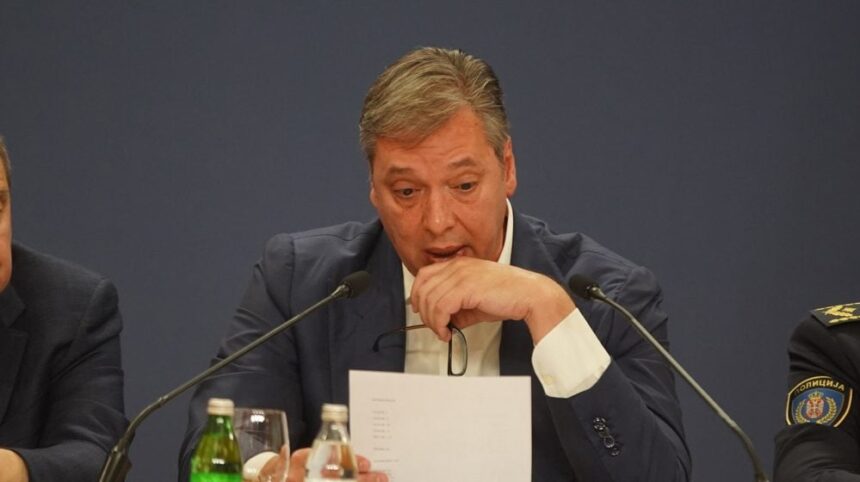Discussions are intensifying in Serbia about whether a future government, potentially led by students and the academic community, could finally implement lustration measures against President Aleksandar Vučić and his political allies once they lose power.
According to Danas, several draft documents are already circulating, outlining how lustration could be applied as an official policy following the regime’s eventual fall.
For over 25 years, the word “lustration” has symbolized unfulfilled promises in Serbia. Following the October 5, 2000 revolution, attempts to purge officials tied to corruption, authoritarianism, and human rights violations from public life largely failed, allowing many figures from the 1990s – including Vučić and Ivica Dačić – to return to power.
Missed Opportunities After 2000
Lawyer Siniša Nikolić, who served as chief of staff to the late Prime Minister Zoran Đinđić, recalled that lustration was one of the central promises of the DOS coalition but was never fully implemented. A Law on Lustration was adopted in 2003 with a 13-year validity, but no one in Serbia was ever lustrated, largely due to political deals and lack of political will.
Nikolić compared Serbia’s failure with countries like Czechia, Poland, Romania, and East Germany, which implemented rigorous lustration processes that prevented former regime loyalists from returning to public office.
“Serbia is still waiting for its chance. The law exists, it just needs to be revised and enforced. The question is whether we will ever see it implemented,” Nikolić stressed.
Structural and Legal Challenges
Historian Dragan Popović noted that while lustration is a popular demand in post-authoritarian societies, it is difficult to implement in practice, particularly because it must comply with human rights protections and due process.
“Even with political will, lustration is complex. Citizens must adjust their expectations – not everyone will be punished, and justice will not be absolute. It’s a process, not a miracle,” Popović explained.
A Call for a Stronger Model
Former Vojvodina Prime Minister Bojan Pajtić argued that Serbia’s future depends on proper lustration. He called for a hybrid model, combining Poland’s broad scope (covering political, security, media, and educational sectors) with Czechia’s speed and automatic enforcement.
“Without lustration, Serbia will never become a functioning democratic state. We must prevent another Vučić from emerging,” Pajtić warned.







